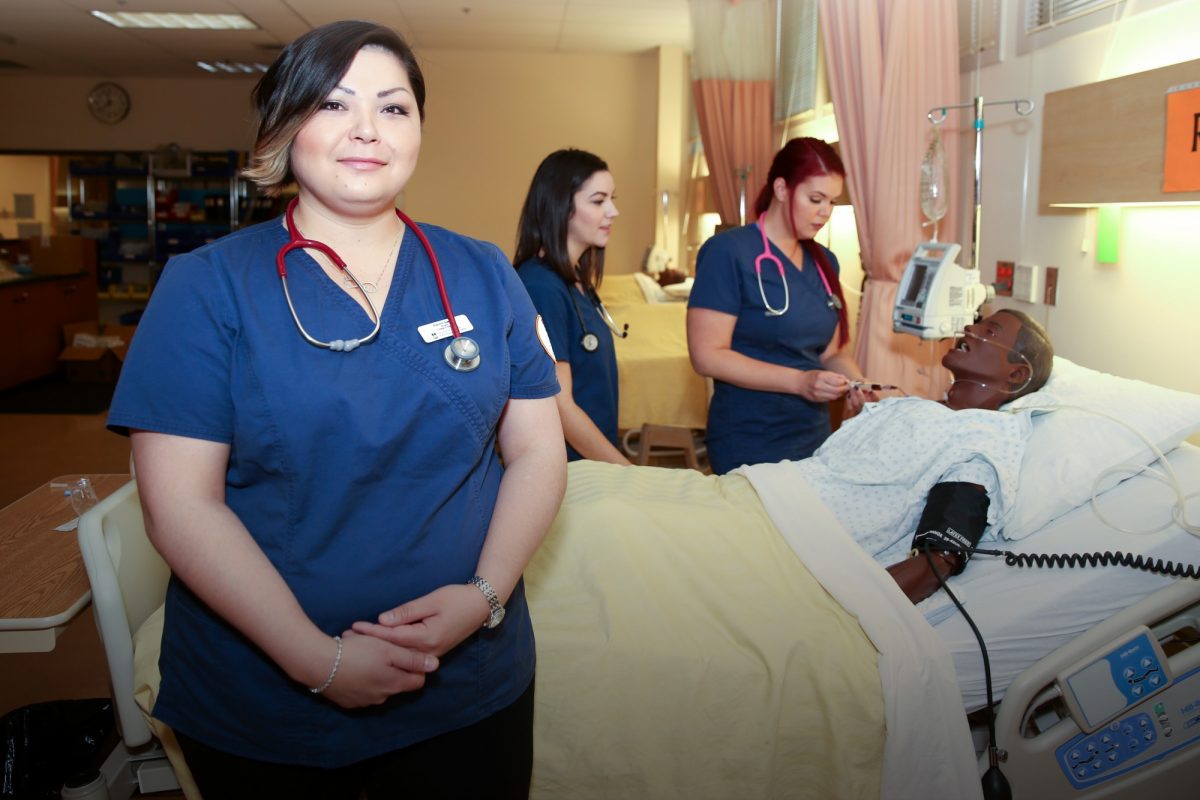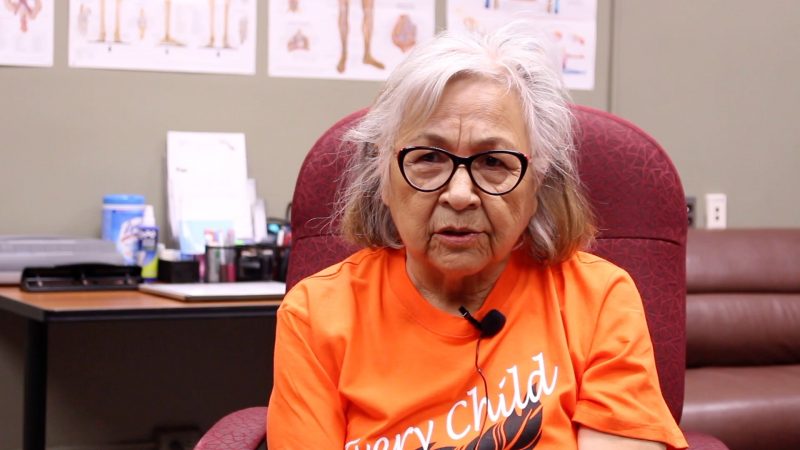
Mahkwa omushki kiim, Pathway to Indigenous Nursing Education (PINE) carries on the work that was done as ANCI, which was founded in 2008 and designed with First Nations, Métis, and Inuit students in mind.
Bear medicine at core of Indigenous nursing pathway
When the committee behind the College of Nursing’s Aboriginal Nursing Cohort Initiative (ANCI) decided it had outgrown its name, the group looked for a symbol to reflect the healing, strength and courage that are at the program’s core of providing support to Indigenous students interested in attaining a degree in nursing.
Part of the name, Mahkwa omushki kiim, means “bear medicine” when translated from Ojibway.
“The bear is known for its strength to restore harmony and balance. In many communities, the bear is known as the great healer and for its spiritual power and physical strength,” said Elder Margaret Lavallee. “The name would establish a connection and pride for our students. The Mukwa spirit teaches us to have courage – to face our challenges, fears and adversity and to do the right thing.”

“The name would establish a connection and pride for our students,” said Elder Margaret Lavallee.
Mahkwa omushki kiim, Pathway to Indigenous Nursing Education (PINE) carries on the work that was done as ANCI, which was founded in 2008 and designed with First Nations, Métis, and Inuit students in mind. The program includes access to an Elder-in-Residence, regular meetings with a student advisor, counsellor and academic coach throughout the year, and smaller class sizes to facilitate a more focused and supported learning environment.
“We’re in our twelfth year, and I think we’ve outgrown words like ‘cohort,’” said Tyla Turman, PINE coordinator and academic coach. “When PINE students enter the nursing program, they become a part of the general program, still receiving support from PINE throughout their time in the College of Nursing.”
The new name was chosen earlier this year by Lavallee and a group that included Knowledge Keeper Leslie Spillett, student advisor Audrey Richard and Debra Beach Ducharme, director of Indigenous health integration for Ongomiizwin – Education, part of the Rady Faculty of Health Sciences’ Indigenous Institute of Health and Healing.
The committee agreed the name was a good fit, as Indigenous students who are admitted into the College of Nursing are being trained to become caregivers/healers for the community.
“Including a name in an Indigenous language reinforces our place within the academy, builds belonging and connection to ancestral ways of knowing and being and strengthens identity for Indigenous students, faculty and staff,” Spillett said.
“The use of the Indigenous language in our name was very important to us,” added Audrey Richard, PINE student advisor/counsellor. “When I think of the bear, its strength and courage, I feel it reflects the work we do. Our hope is that the students will identify with the spirit of the bear medicine and its teachings while they are with us in PINE and upon graduation in their nursing practice.”
Since the initiative was founded in 2008, it has seen an increase in applicants and in Indigenous students being admitted to the College of Nursing. Growing from the inaugural admission of 26 students, PINE currently supports over 100 self-identified Indigenous students annually throughout the pre-nursing requirements to their senior year in their pursuit to achieve their bachelor of nursing degree.
“We are delighted to move forward with our new name as it will create a greater sense of belonging and connection for our students with Indigenous ancestry and we hope will serve to further increase our enrollment of Indigenous students,” said College of Nursing dean Dr. Netha Dyck. “It also provides a unique opportunity to celebrate the success of our Indigenous students and their significant contribution in the provision of quality nursing care in their community and throughout the health-care system.”






